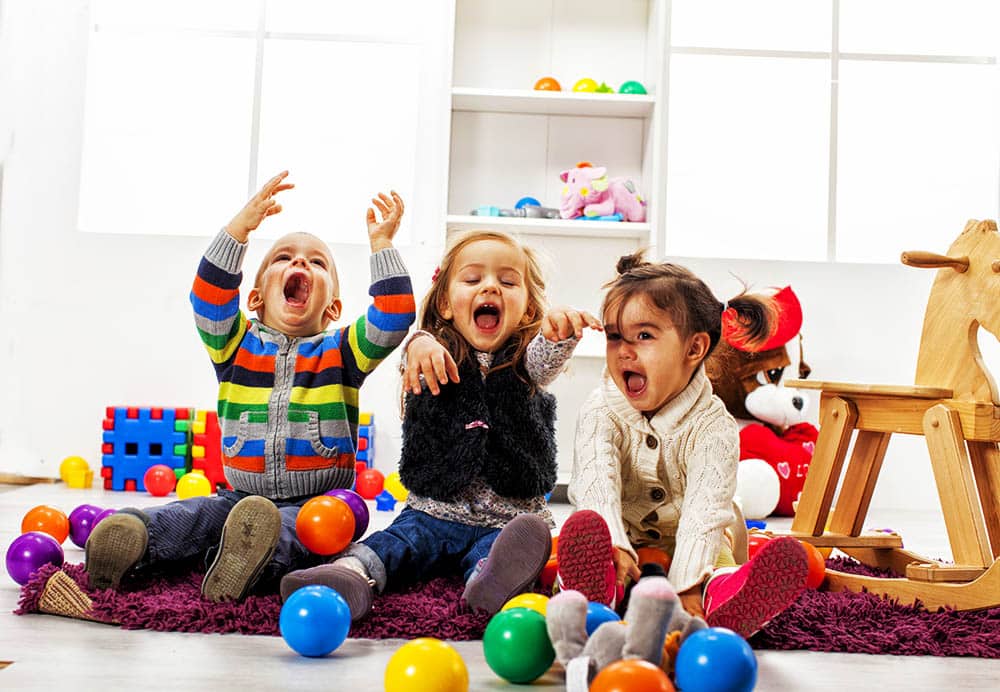Why Early Childhood Education is Crucial for Your Child’s Future Success
As parents, it’s natural to want the best for your children, and education tops the list of priorities. While formal education generally begins at age five, early childhood education can play an instrumental role in shaping a child’s academic and personal success. Here are six reasons why early childhood education is crucial for your child’s future success.
1. Early Childhood Education Develops Cognitive Skills
From birth to five years of age, your child’s brain is rapidly developing, and this period is a critical window of opportunity to establish a strong foundation for cognitive development. Early childhood education programs are designed to foster cognitive skills like problem-solving, memory, and critical thinking through educational games, storytelling, and other creative learning activities.
These programs prioritize hands-on learning that helps children grasp complicated concepts through experimentation and exploration. By exposing your child to stimulating and varied learning experiences at an early age, you set them up for a more robust, sustainable mindset that will benefit them throughout their academic and professional careers.
2. Early Childhood Education Helps Develop Social Skills
Your child’s social skills development also starts early. Encouraging them to engage with others and cooperate from a young age plays a vital role in creating good social skills later in life. Early childhood education programs such as pre-school and daycare centers provide a learning environment that promotes cooperation, socialization, and communication skills.
When children interact with other kids under the guidance of trained professionals, they not only develop social skills but gain a deeper understanding of themselves and others, building empathy, respect, and vision for diversity. This social development sets them off for a better chance of acceptance in groups, a vital factor to help them navigate different school settings and social groups as they grow up.
3. Early Childhood Education Builds Confidence and Self-Esteem
In the early years of life, children’s lives are full of wonder and endless possibilities. Given the right tools and environment, they can gain confidence in their abilities, which contributes to their personal growth, promotes self-esteem, and prepares them for future success.
Through early childhood education programs, kids develop important soft skills such as verbal communication, creativity, resilience, and most importantly, confidence. Children can gain confidence by expressing themselves freely, learning independent thinking, problem-solving, and decision-making strategies, critical in handling life’s challenges that will come their way over time.
4. Early Childhood Education Lays the Foundation for Lifelong Learning
There is no overstating the importance of education in our everyday lives, and early childhood education sets the right foundation for a lifetime of learning. Through early childhood education programs, children develop a natural curiosity and desire for knowledge and information, which drives continuous learning even in later years.
Early childhood education programs instill foundational skills like reading, writing, and counting in young minds, setting them up for future academic success. By treating education like a priority at an early age, it becomes an innate part of how kids think as they approach other milestones in their education journey.
5. Early Childhood Education is Linked to Better Adult Health Outcomes
Studies have shown that early childhood education is linked to better health outcomes later in life. The effects of early childhood education resonate long after kindergarten, extending to better mental and physical health and reducing the risk of chronic illnesses and diseases like depression, insomnia, and obesity.
Moreover, children who receive early childhood education are more likely to graduate high school, attend college, and earn higher incomes as adults, leading to more stable and comfortable living conditions and environment with dedicated access to quality healthcare.
6. Early Childhood Education Equips Children with Critical Life Skills
Early Childhood Education instills lifelong skills that go beyond the classroom, which are instrumental in achieving future success. Self-regulation, empathy, problem-solving, and collaboration are just a few life skills young children develop in a nurturing environment.
Encouraging children to learn and practice these skills early on is crucial as they form the backbone of responsible, productive, and compassionate adults. Skills such as patience, team-building, and conflict management come in handy in social settings as children learn to interact with different people.
In summary, early childhood education is an integral part of preparing your child for future success. The benefits are evident, with lifelong learning, better health, and critical life skills picking amongst many reasons why you should prioritize early childhood education for your children. As your child’s primary caregiver, enrolling them in a reliable, quality early childhood education program is an investment in their future that pays significant returns as they grow into responsible, productive adults.

Deja una respuesta